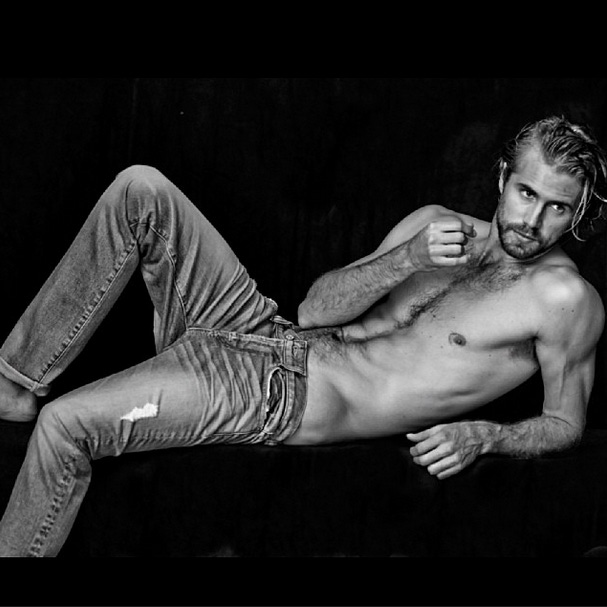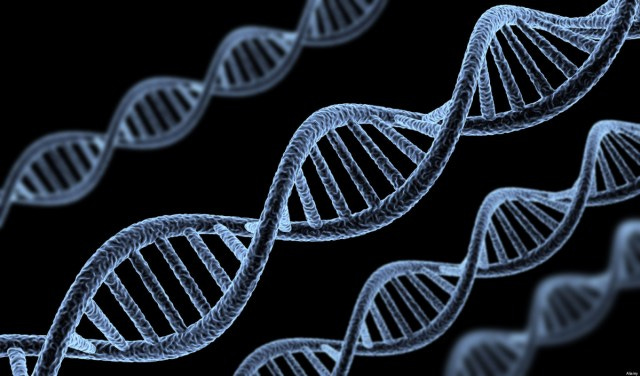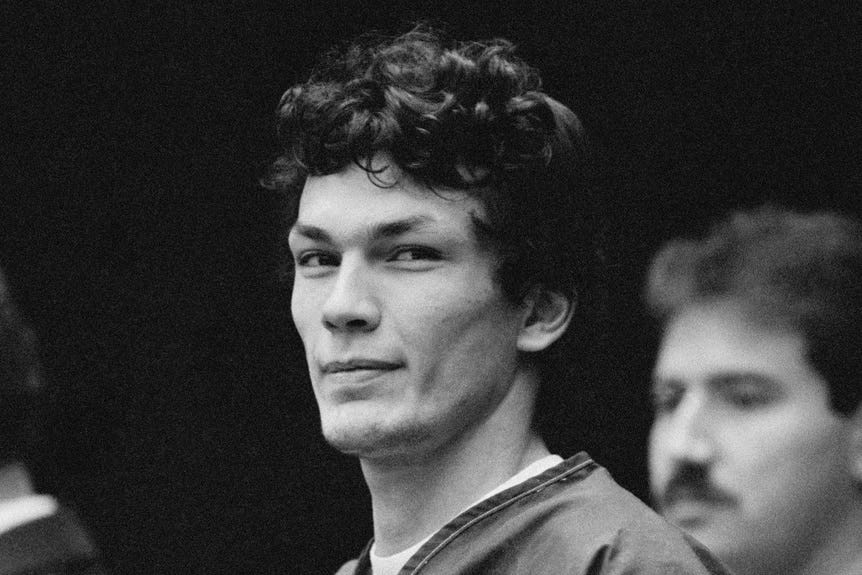How you look is a great indicator of your health
Meaning that your external is a great reflection of what is happening internally.
So I wanna give credit for this one to my penpal, EGR, again. As he often talks about this.
And note that he is a doctor… so he’s not someone you would typically see saying something like this.
But the main idea is that the best indicator of your health is not some blood test, not how much time you spend at the gym, not how health you eat, rather it’s how attractive you are physically.
And so basically how attractive you are externally is perhaps the best reflection of how healthy you are internally.
My caveat to his thesis is that I think how you ‘function’ is just as important. And perhaps more so.
But let’s dive into his thesis and what the logic is.
We all have the genetics for perfection
Let’s start by reminding everyone of this overriding biomechanical premise that we were all genetically designed to be perfect.
There is no gene for imperfection. I wrote more on this here in case you haven’t read it:
When a person has genetic disorders or diseases my interpretation is that it was most likely biomechanics that caused it. For example compensations in their mother compressed them as a child and altered their genes.
So even things that ‘seem’ genetic probably have a biomechanical root cause.
If you don’t look perfect, it means you are biomechanically compensated
If perfect symmetry is more or less perfect health. Then you can also expect the opposite to be true.
The more assymetric you look, the less healthy you are.
Christina Applegate is perhaps a good example of this.
When she was young she looked amazing. Easily top 0.1% of Americans in terms of looks.
Now at age 53 she not only looks a lot worse, but also has significant health issues like Multiple Sclerosis. I tell her story in a lot more detail here.
But long story short.. she clearly had some bad dental work done that twisted her body and skull.
And Multiple Sclerosis is most likely how the body reacted to that twisting.
The more your body and skull deviates from symmetry, the higher the likelihood of serious disease there probably is.
Is it going to be perfect? No.
But if you were making a scatterplot I bet the r-squared would probably be 0.9 or better. At least that is the pattern i’ve generally observed the past decade.
Does the data back this up?
Try to remember stories of attractive people dying of natural causes young. I’ve been paying attention to this pattern for about 10 years.
And I can tell you that it rarely happens.
I’m not saying that it never happens. For example it threw me for a whirl when I found out that ‘Spartacus’ actor Andy Whitfield died in 2011 of non-Hodgkin lymphoma at the age of just 39.
The guy was a beautiful looking dude by any definition.
It made me second guess a bit my overarching thesis.
But then I accepted the fact that even though he looked good… the body compensates in complex ways. And sometimes, albeit not often, it can compensate in a way that creates something like cancer without compensating the skull/skeleton much.
I also think this probably explains why you have serial killers that seem to look quite healthy like Richard Ramirez.
Biomechanics are still probably at the root cause. And ‘most’ serial killers will look clearly compensated.
But some will have compensated in ways that are perhaps less visibly clear from the outside like Richard.
Becoming ‘better looking’ is a great yardstick for getting healthier
You can almost think of it as… if you’re not getting better looking then you’re not really getting healthier.
For example I have this one friend that went to the gym religiously for years. He’d wake up really early in the morning to hit the gym before work.
And for all that work..he always pretty much looked the same to me. Sure he’d sometimes say he’d lost 10 or 20 pounds… but to me he didn’t look any better.
Sometimes it even seemed like he looked a bit worse when he was skinnier.
But he’d been brainwashed into thinking he was far healthier for doing this.
John Goodman is perhaps an example of this. He famously lost over 100 pounds. Does he look healthier and happier in his smaller size? To me he doesn’t.
And it is well known that he still suffers from depression and anxiety. So it obviously didn’t fix him of all his issues.
But wait… the caveat is ‘inflating’
Now there is a caveat to this story. In that my experience is also that you kind of ‘inflate’ during this biomechanical recovery process.
And for example on me… that means I look a fair bit bigger.
I weigh considerably more than i did in 2020 for example. And none of my old clothes fit me.
But at the same time:
I’ve gotten a lot stronger and more flexible
My posture has improved a lot (eg. my chest sticks out and shoulders are back naturally)
My skin and complexion have improved a lot (eg. all wrinkles disappeared)
My hair has gotten thicker and greys have reduced
My facial symmetry has improved and I naturally look a lot ‘happier’ than i did
And i’m very confident that when i reach the ‘end’… the ‘inflated’ look kind of goes away and i’ll look like a linebacker.
Why am I confident? Because i’ve already done this years ago and that is what happened.
Closing thoughts
This article is going to annoy some people out there.
Especially the ones that spent their entire adult lives going religiously to the gym and caring a lot for their diet.
But it is important to note an important piece of the logic. Eating healthy does have a bunch of positive benefits when you are collapsing. It is why people constantly say anecdotes about feeling more energy after changing their diet.
It is when you are correcting yourself with these biomechanics that in my view these things play a far smaller role.
And a great yardstick for getting healthier is going to how you look. That and how you function (eg. concentration, energy, how often you get sick, etc).
And the guy eating crap that does no exercise but looks like a “chad” naturally… yeah, i’m saying he’s in fact probably much healthier than you.
So let that piss you off a bit.
And then do what I do.
Double down on this biomechanical process and vow to leave his ass in the dust one day.











my own model is more of a tension-relaxation model rather than biomechanics although there is so much overlap between the two. tension degrades biomechanics, relaxation improves it; poor biomechanics increases tension and improving it leads to relaxation, etc.
my primary source of tension is in my right suboccipital, which I have figured out is likely due to anxiety-overthinking. I noticed that the neck is in charge of 'scanning' for threats, changes, etc, and I noticed its constant movement checking for updates/notifications on my phone and desktop. and from a very young age (as far as I can remember in fact...), my right eye was 'smaller' and sunken in compared to my left. I didn't pay attention much as a child, but when I grew vainer in my teenage years, I noticed it more. anyway, I eventually realised that the cause of this was due to a shitload of tension in my right suboccipital that pulled all the way to my eyeball socket, 'pulling' the eyeball inwards. I am sure this is why many people have sunken eyes, especially when stressed. the stress of the neck-suboccipitals literally pulls their eyes into their skull.
the rest of my face was not that obviously asymmetrical but the eyes were very obviously so, especially in photos. my left side was wide open, radiant, brimming with aliveness whilst my right eye was closed, tense, sunken, dull. as I did my tension-discharge practice, my right eye very quickly became more 'prominent', open, softer and more relaxed. and since the eyes are such a significant part of the face, I thought I looked so much more attractive and 'balanced' than before.
the other parts of my face may have changed but nothing as noticeably and prominently as my eyes. overall, i think there is a slight 'widening' - I thought my face would look a bit narrow in the past especially if my hair(style) was a certain way, but in the last few weeks, its seems more squarish. my shoulders also look wider. the difference seems so slight that it should be barely perceivable, but somehow, slight differences in the shoulder seem particularly noticeable, perhaps because they frame and tailor the rest of the upper body such that differences that the conscious mind doesn't register is in fact clearly noticed by the subconscious. ever since I noticed my body compensations, I stopped all resistance training, and my body fat levels look to be about the same, but somehow, the body fat just seems more distributed so that I look leaner and 'wider' around the shoulders just due to a slight change in frame.
I am in the midst of posting and editing my 'model' after you suggested that I start a substack lol. I will probably include some pictures of my face and eyes when I get around to publishing the complete thing.
this makes quite a lot of sense to me. all of your articles do.